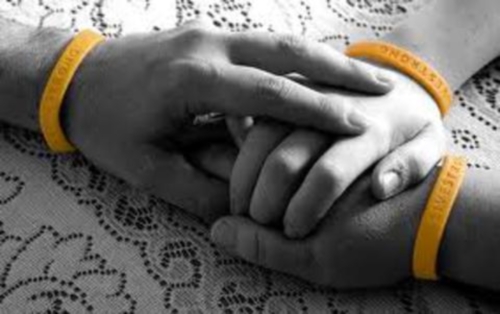Are you are among the estimated 90 million Americans–25% of the population–who has one or more chronic diseases–or are you taking care of someone who has an ongoing health issue? If you've gone online to access health information, connect with fellow sufferers, or share your experiences, you're not alone.
A new report by Susannah Fox, released today by the Pew Internet Project in collaboration with the California Health Care Foundation, "The Social Life of Health Information, 2010," found that 59% of American adults look on line for health information. A smaller percentage — 34% of internet users, or 25% of adults — have read someone else’s commentary or experience about health or medical issues on an online news group, website, or blog.
Health-related social ties generally fall into the realm of consequential strangers: doctors and other medical personnel, patients, and caregivers who are enlisted as part of the sufferer's social convoy–the entourage of people who travel through the experience with him or her. Although our social convoys of course include our intimates, they might not be in the best position to help us. They're traumatized, too. Also, they usually don't have a map of the territory.
While the vast majority of our illness-associated connections offer actual hand-holding and face-to-face sharing, the Internet allows use to forge these kinds of ties online as well. As Pew concludes:
The social life of health information is robust. The online conversation about health is being driven forward by two forces: 1) the availability of social tools and 2) the motivation, especially among people living with chronic conditions, to connect with each other.
I am honored that the Pew report quoted Consequential Strangers (see page 7 of the PDF, or this online link): "If people who are already on board don’t have the information, experience, or empathy you need, you enlist others who do." (from Chapter 4, Good for What Ails Us)
In a pattern that matches this observation, people living with one or more chronic conditions and those living with disability are significantly more likely than other social network site users to gather health information on these sites.
The problem is, that people you "meet" on the Internet are total strangers. Unlike striking up a conversation in a doctor's waiting room or meeting at a support group, it's a little trickier to go from stranger to consequential stranger with someone you can't see. Some common-sense guidelines can help:
- Proceed slowly with any online relationship. Some people prefer to have Internet "conversations" anonymously until they are certain that the other person is legit.
- Offer your own information sparingly, don't divulge anything personal that might be used to track you down.
- Never base treatment decisions or methods of care solely on information from the Internet.
- Before you allow an online relationship to migrate off line, suggest a video chat. And if you do decide to see each other IRL (in real life), make sure that your first meeting–to be safe, first several meetings–take place in a public venue.
- Remember that even sites sponsored by major health groups don't usually screen their members. Just because someone says she has cancer, for example, doesn't mean she actually does. She might suffer from Munchausen's-by-Internet–a condition in which someone fakes symptoms to garner attention online. Dr. Marc D. Feldman, an expert in "factitious" conditions who first identified the Internet version, admits that while there are clues that someone has MIB, even he has been fooled.









